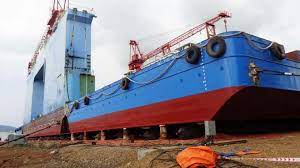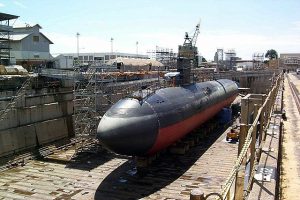What is a Floating Dry Dock?
What is the disadvantage of a floating dry dock? A floating dry dock is a special kind of barge that may be used to haul boats, ships, and other marine vessels out of the water and support them while they are there for the purposes of construction, maintenance, and repair. Floating dry docks can range in size from being able to accommodate small boats and yachts to being large enough to handle cargo ships and military vessels. Some floating dry docks can even accommodate both.
Advantages of Floating Dry Docks
Flexibility and Mobility
The ability of floating dry docks to be flexible and mobile is one of the primary benefits of using them. Unlike conventional dry docks, floating dry docks are mobile and can be moved to a variety of places depending on the requirements of the vessels that will be receiving maintenance at the floating dry dock. Because of this, they are ideally suited for use in secluded areas or regions that have restricted access to shore-based services.
Ease of Use
The fact that floating dry docks are so simple to operate is yet another advantage they offer. Floating dry docks, in contrast to conventional dry docks, do not call for the same level of specialised equipment or workforce to operate. Instead, these docks may be managed by a more manageable number of people. Because of this, they are both more efficient and cost-effective, particularly for more compact maritime boats.
Durability
Floating dry docks are built with sturdiness and longevity in mind from the very beginning of the construction process. They are often made from high-strength materials that are resistant to corrosion as well as other sorts of damage. This ensures that they are able to withstand the severe conditions that are seen in maritime environments for a significant amount of time. Because of this, they are an excellent choice for satisfying the requirements of marine maintenance and repair.

Disadvantages of Floating Dry Docks
Floating dry docks offer a multitude of benefits; however, there are also a few drawbacks that need to be taken into consideration. What is the disadvantage of a floating dry dock?
Limited Capacity
The limited capacity of floating dry docks is one of the most significant drawbacks associated with these types of docks. Unlike conventional dry docks, which are able to accommodate a wider variety of vessels, floating dry docks are often only suitable for yachts and boats of a smaller size. This indicates that they are not suited for usage with larger vessels, such as those used in the military or for transporting goods, and hence cannot be utilised with these types of vessels.
Expense
The expense of floating dry docks is yet another drawback associated with using them. Even though they are typically more cost-efficient than conventional dry docks, both the initial investment and ongoing operating costs for these dry docks can be quite high. Because of this, some maritime operators who are trying to cut down on the amount they spend on maintenance and repairs may find it less enticing to use them as an option.

Environmental Concerns
Last but not least, floating dry docks are another potential source of environmental difficulties. It is possible for them to have a substantial influence on the surrounding maritime environment due to the fact that they are normally built from durable materials and are utilised to support huge marine boats. This can involve the contamination of water, the release of dangerous chemicals, and the disruption of marine life and the environments that they call home.
Conclusion
Floating dry docks provide a solution that is both flexible and efficient for the requirements of marine building, maintenance, and repair. Having said that, they do come with a few drawbacks, the most notable of which are their limited capacity, high cost, and environmental problems. When determining whether or not a floating dry dock is the best option for your marine activities, it is essential to give careful consideration to the aforementioned considerations. It is possible to take use of the many benefits of floating dry docks while at the same time minimising the potential hazards and negative repercussions, provided that great attention and planning are put into the endeavour. For dock seal products see here.

Recent Comments